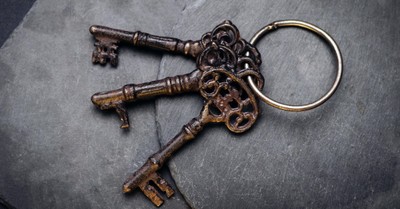Actress Hid in Freezer during Barcelona Terror Attack
A van plowed into a crowd of people in Barcelona, Spain, yesterday. The death toll rose to fourteen this morning, with more than one hundred injured.
British actress Laila Rouass live tweeted her experience: “In the middle of the attack. Hiding in a restaurant freezer. Happened so fast. Praying for the safety of everyone here.”
Eight hours later, a second attack at the resort city of Cambrils was stopped when police killed five terrorists.
If these attacks had happened in America prior to 9/11, we would have been surprised and shocked. Even though Islamic radicals had been waging war for years, the 1993 shootings at the CIA Headquarters and the World Trade Center bombing in New York City were the only terror attacks on American soil.
But our ignorance did not change reality. From the 1979 seizure of our embassy in Iran until September 11, 2001, Wikipedia lists fifty-eight other jihadist attacks, killing more than two thousand people. These attacks did not shock most Americans because they seemed irrelevant to our lives.
Since 9/11, Wikipedia lists 419 separate attacks through June 9, 2017, killing more than fourteen thousand people. However, only ten of these were on American soil. The others did not shock most of us because we have grown callous to global jihadism.
Here’s my point: in our post-9/11 world, terrorism affects us emotionally to the degree it affects us personally.
This fact reflects our existentialist worldview. Most people in the West believe that truth is personal and individual. The world is whatever we believe it to be. History begins and ends with us. What doesn’t touch me doesn’t affect me.
What if our Lord viewed suffering this way? “God is in heaven and you are on earth” (Ecclesiastes 5:2). In a sense, nothing that happens here affects him there. We are sinful, but he is sinless (Hebrews 4:15). We are mortal, but he is immortal (Psalm 102:12). We are weak, but he is omnipotent (Jeremiah 32:27).
And yet, because God loves us, everything that happens here affects him there. In The Cross of Christ, John R. W. Stott asks:
“In the real world of pain, how could one worship a God who was immune to it? I have entered many Buddhist temples in different Asian countries and stood respectfully before the statue of the Buddha, his legs crossed, arms folded, eyes closed, the ghost of a smile playing round his mouth, a remote look on his face, detached from the agonies of the world.
“But each time, after a while I have had to look away. And in imagination I have turned instead to the lonely, twisted, tortured figure on the cross, nails through hands and feet, back lacerated, limbs wrenched, brow bleeding from thorn pricks, mouth dry and intolerably thirsty, plunged in God-forsaken darkness.
“That is the God for me! He laid aside His immunity to pain. He entered our world of flesh and blood, tears and death. He suffered for us. Our sufferings become more manageable in the light of His. There is still a question mark against human suffering, but over it we stamp another mark, the cross which symbolizes divine suffering.”
Now, our crucified God calls us to share his pain for our suffering world. He calls us to pray for those devastated in Barcelona as though they lived in our community. He calls us to pray for the conversion of radical Muslims as though they were our brothers and sisters. He calls us to see every hurting soul as a member of our family—because they are.
“The Lord is near to the brokenhearted” (Psalm 34:18). Are you?
Photo courtesy: ©Thinkstock/marianceccarelli
Publication date: August 18, 2017
For more from the Denison Forum on Truth and Culture, please visit www.denisonforum.org.
Do you want to live a life in whole-hearted pursuit of loving God and others?
Read today's First15 at www.first15.org.

















